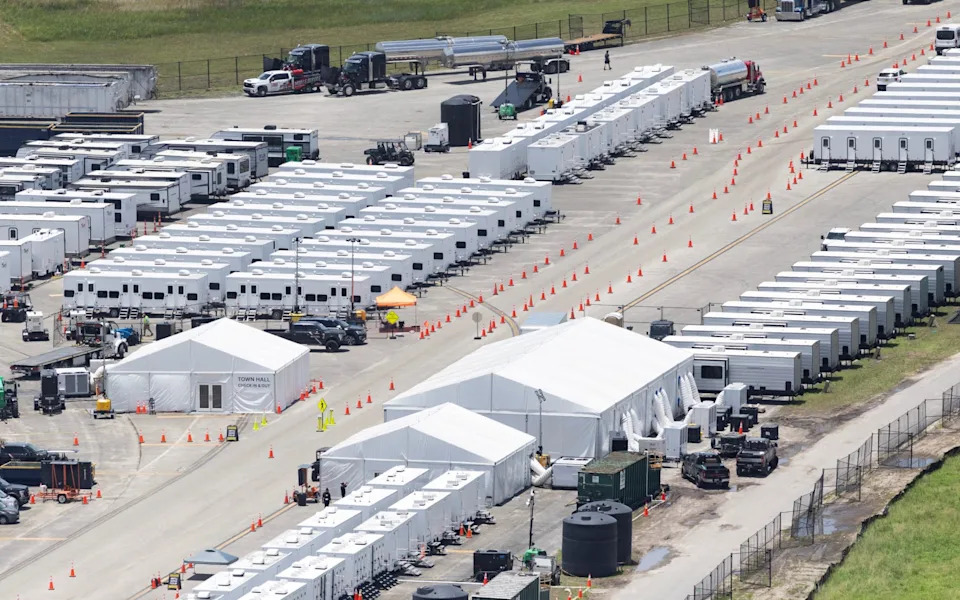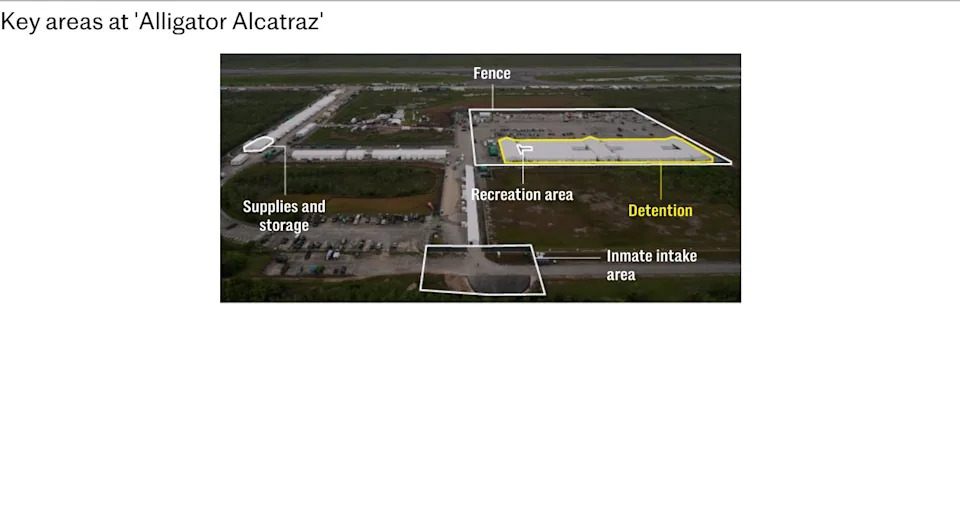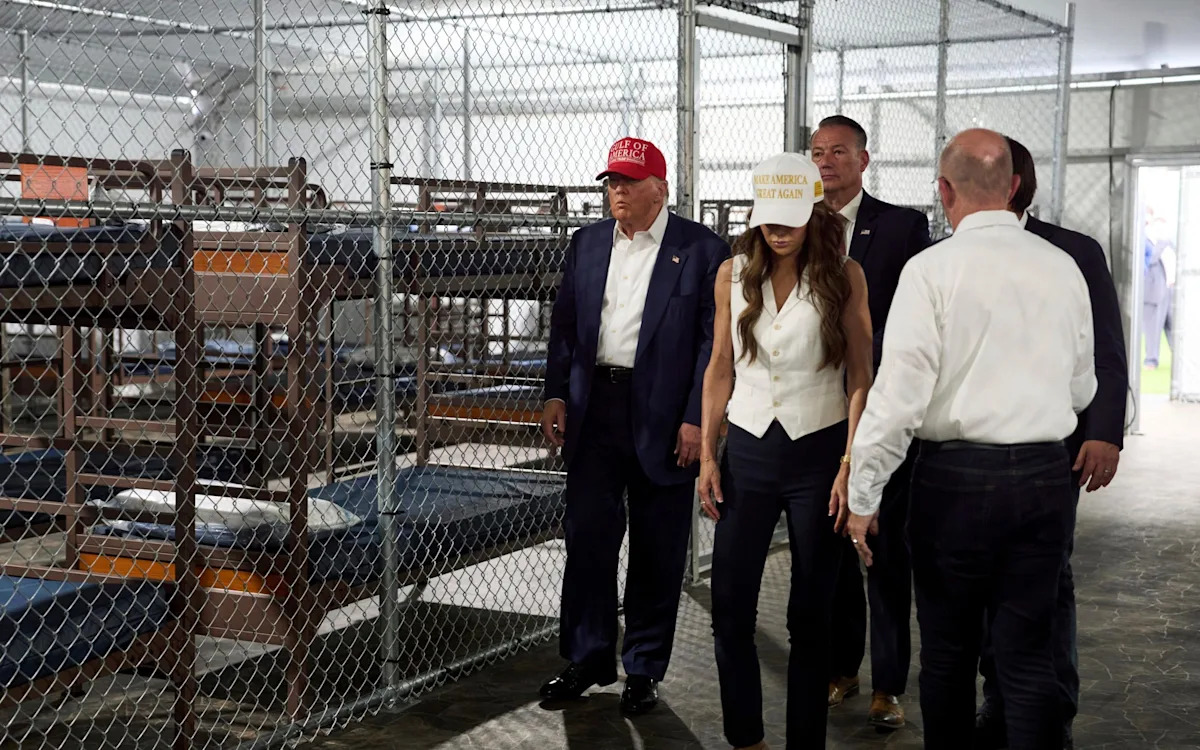Donald Trump’s Alligator Alcatraz migrant detainment camp must be closed down, a judge has ruled.
A ruling from US District Judge Kathleen Williams citing environmental concerns bans new migrants from being moved to the detention camp.
The order gives the state 60 days to transfer current detainees to other facilities before dismantling the site.
In her 82-page order, published in the US district court’s southern district of Florida on Friday, the Miami judge found the facility was causing severe and irreparable damage to the fragile Florida Everglades.
The judge’s ruling is a blow to Mr Trump and his efforts to carry out the largest deportation in US history.

The facility is made up of trailers and tents to house illegal migrants
The prison, which was erected on an abandoned airstrip surrounded by an alligator-infested swamp, was seen as the crown jewel in Mr Trump’s hardline policy.
It was the first, and most extreme, of a string of creatively named facilities that were opened to expand ICE detention capacity.
Visiting the immigration jail earlier this year, he described it as an “East Coast” version of the original Alcatraz prison off the San Francisco coast, which he had weighed reopening.
But Judge Williams, who was appointed by Barack Obama, sided with environmental groups who say the facility is endangering the Everglades and its wildlife.
The order said that authorities must remove “all generators, gas, sewage, and other waste and waste receptacles that were installed to support this project,” within 60 days.

It added that some fencing and additional lighting that had already been installed must also be removed.
Florida, which is partnering with the federal government in the building of the facility, immediately filed an appeal.
“The deportations will continue until morale improves,” Alex Lanfranconi, a spokesman for Florida Governor Ron DeSantis, said in response to the judge’s ruling.
The complex in southern Florida at the Miami-Dade Collier Training and Transition Airport is estimated to cost $450m annually and could house 5,000 people, officials estimate.
Two environmental groups filed a legal motion in June seeking to block further construction at the detention site, saying it violated federal, state and local environmental laws.
Credit: @Basil_TGMD/X
For several years, “every Florida governor, every Florida senator, and countless local and national political figures, including presidents, have publicly pledged their unequivocal support for the restoration, conservation, and protection of the Everglades,” the judge wrote.
“This order does nothing more than uphold the basic requirements of legislation designed to fulfil those promises.”
In July, Mr Trump and Kristi Noem, the homeland security secretary, toured the facility of trailers and tents, erected with chain-link fencing atop an old airstrip and intended for what Mr Trump described as the “most vicious” migrants.
By detaining them there, “we’re going to teach them how to run away from an alligator,” he said. “We’re surrounded by miles of treacherous swampland, and the only way out is really deportation.”
In her ruling, Judge Williams said an environmental assessment was required before the site was erected in the Everglades, but “the defendants chose not to do so”.
Mr DeSantis had said the facility would have “zero” impact on the surrounding wetlands.
But the judge cited expert testimony and said the project will have “considerable environmental impacts” and should have been reviewed by relevant federal agencies.
The project “creates irreparable harm in the form of habitat loss and increased mortality to endangered species in the area,” including the Florida panther, she wrote.

